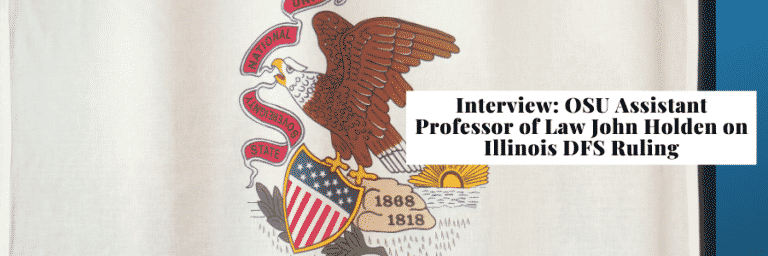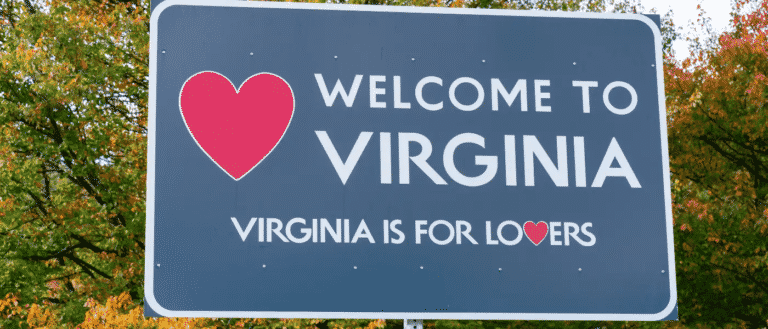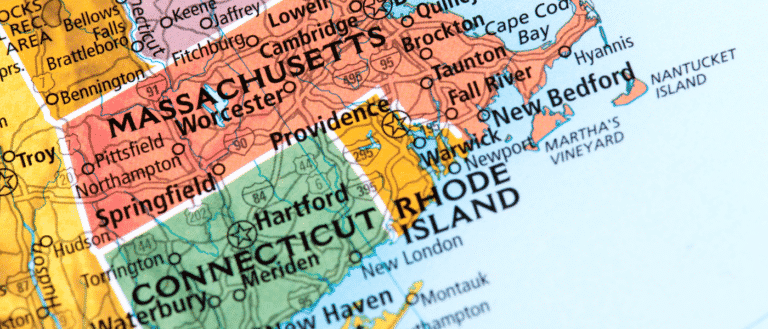Can A New Study Solve the New York Sports Betting Dilemma?

A long-awaited gaming market study by Spectrum Gaming Group has been published on the New York Gaming Commission website.
The 358-page report is comprehensive and outlines the current gaming landscape in the Empire State and several potential paths New York could explore as it considers expanding gambling.
A Long Time Coming
The NYGC requested proposals in September 2019 and selected Spectrum Gaming Group in November 2019. Since selecting Spectrum, the due date has been extended multiple times, most notably to include coronavirus impacts and recovery.
The release of the study comes at an opportune time for New York.
A sports betting bill introduced in both the New York Senate and Assembly (S 1183 and A 1257) has already moved through the Senate Racing, Gaming, and Wagering Committee. The bill will likely undergo several rounds of debate and amendments, but the bigger hurdle is the difference of opinion between legislators and the governor’s office.
New York rocketed up the sports betting contender list after Gov. Andrew Cuomo let it be known that he is hopping on the sports betting bandwagon. However, Cuomo has stated he prefers a lottery-run model in his State of the State address:
“The question isn’t whether or not we do mobile sports betting. The question is more how and who makes the profit. This is very lucrative.
“I believe the people of the state should get the revenues. This is not a moneymaker for private interests to collect just more tax revenue. We want the actual revenue from the sports betting.”
That is the arena the Spectrum Gaming report is entering.
Scope of the Spectrum Report
The NYGC asked Spectrum to cast a wide net, as the report tackles the following eight requests:
- An analysis of the performance of commercial casinos, video lottery gaming facilities, and Native American gaming facilities;
- The economic, fiscal, and social implications of the awarding of up to three (3) additional commercial casino licenses;
- The impact an Orange County-based VLT facility will have on existing gaming facilities and State revenues;
- The impact of a change in taxation rates for existing video lottery and commercial casino games and activities;
- Analysis of the size and scope needed to achieve full revenue potential at each of the existing VLTs and casinos, and analysis of the associated impacts of any such changes on surrounding gaming facilities;
- Analysis of the potential market for other gaming and the impacts of each on the existing gaming markets;
- Analysis of the current distribution of pari-mutuel horse racing revenue; and
- The effect of modification of live racing requirements for pari-mutuel facilities.
Bullet point #6 is the one most people are honing in on, including our readers. Here’s what Spectrum had to say on the topic.
Spectrum’s Analysis of Sports Betting in New York
Spectrum looked at a variety of potential New York sports betting models:
- Sports wagering, only at commercial casinos;
- Sports wagering expanded to video lottery gaming facilities and off-track betting facilities; and
- Online sports wagering, lottery, and video poker.
According to the Spectrum report, a casino-run sports betting model (commercial and tribal) would generate $72-$99 million in annual tax revenue for the state, with a one-time licensing fee haul of $168 million.
Cuomo’s budget predicts a lottery-run sports betting industry would bring in $500 million annually for the state.
Of note, Gov. Andrew Cuomo’s lottery-run proposal was not one of the sports betting models Spectrum considered, which raises the question: Where did Cuomo get the idea?
The bigger question is, what will New York do with this information?
Meet in the Middle?
Cuomo’s proposal is unpopular among the industry and sports bettors, but as some have suggested, his plan is unlikely to be an intractable position.
It could merely be a negotiating tactic to extract maximum revenue for the state from sports betting by telling operators the state has an alternative to a casino-run industry. I would posit that Cuomo doesn’t care how the industry is structured. His only concern is reaching $500 million in annual revenue from sports betting.
As I wrote last week:
“Cuomo’s idea is to have the state lottery run online sports betting, but if he looks to the other state on his southern border, he may discover the perfect compromise between a lottery-run monopoly and the operator-friendly market of New Jersey: The Pennsylvania Model.”
And as Chris Krafcik and Chris Grove tweeted, the middle ground between the legislature’s proposal and the governor’s is likely to be a casino-run industry with some heavy financial burdens on licensees.







